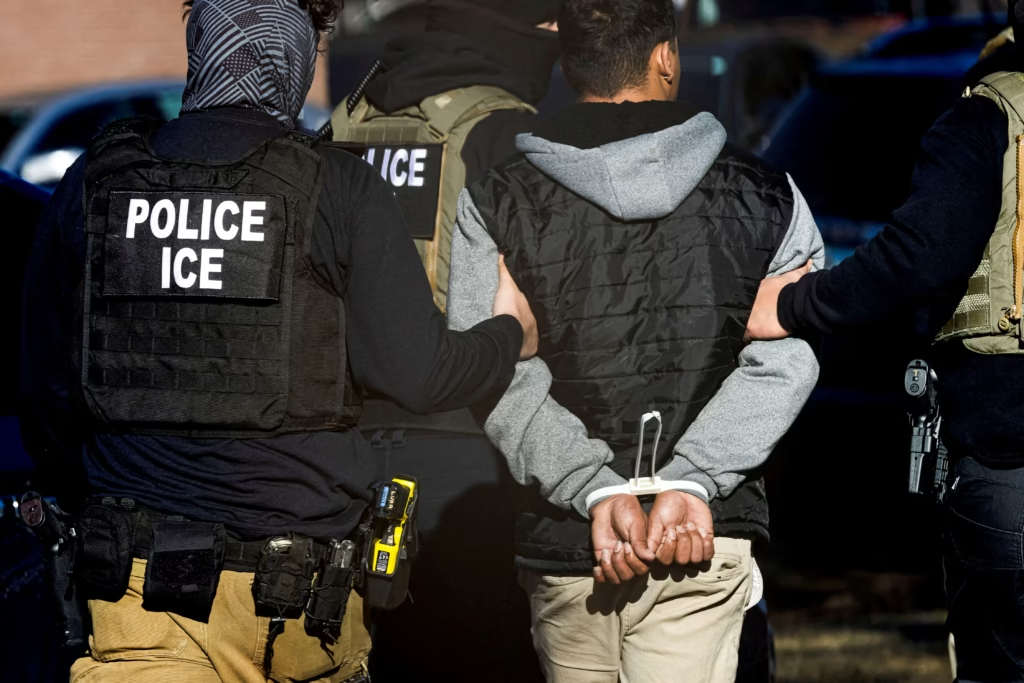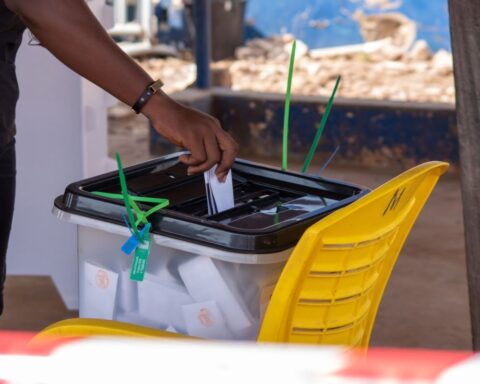Eleven West African nationals, hailing from countries including Nigeria, Liberia, Togo, The Gambia, and Mali, have filed a legal challenge against the Ghanaian government, accusing it of unlawfully detaining them after their secretive transfer from immigration detention centers in the United States.
The case, lodged at the Human Rights Division of the High Court in Accra, raises serious allegations of human rights violations and breaches of both Ghanaian and international law.
The plaintiffs, represented by prominent Ghanaian lawyer Oliver Barker-Vormawor, are seeking a writ of Habeas Corpus Ad Subjiciendum, a legal mechanism that compels authorities to justify the detention of individuals before a court.

The ex-parte application, set to be heard on Thursday, September 19, demands the immediate production of the detainees, who are reportedly held in a suspected military facility in Ghana.
A Transatlantic Ordeal
According to court documents, the applicants were detained in U.S. immigration facilities until September 5–6, 2025, when they were allegedly shackled and transported to Ghana without prior notice or explanation.
At least eight of the plaintiffs had been granted protections against deportation by U.S. immigration courts, including Withholding of Removal or Deferral of Removal under the Convention Against Torture (CAT). These protections were issued due to the risk of torture, persecution, or inhumane treatment if returned to their home countries.
Upon arrival in Ghana, the plaintiffs claim they were handed over to Ghanaian authorities and detained without due process or judicial oversight.

Their affidavit asserts that this transfer and subsequent detention violate Ghana’s 1992 Constitution, specifically Article 14(1), which guarantees personal liberty and protection from arbitrary arrest and detention.
The plaintiffs also argue that their rights to administrative justice, due process, and non-refoulement—a principle prohibiting the return of individuals to countries where they face serious harm—have been disregarded.
Legal Action and Constitutional Claims
The lawsuit names the Attorney General, the Chief of Defence Staff, and the Comptroller General of the Ghana Immigration Service as respondents.
The plaintiffs are seeking enforcement of their fundamental human rights under Article 33(1) of Ghana’s Constitution, which allows individuals to seek judicial remedies for violations of their rights.
They are urging the court to issue an order ensuring “urgent and effective protection” in line with Ghana’s constitutional and international obligations.
The case has drawn attention to Ghana’s role in receiving deportees from the United States, raising questions about the country’s adherence to international human rights standards.
The plaintiffs’ legal team argues that their detention in a suspected military facility, without access to legal representation or a clear justification, constitutes a grave breach of due process.
Broader Implications
The lawsuit comes at a time of heightened scrutiny over global migration policies and the treatment of deportees. The plaintiffs’ claims highlight the complex interplay between national immigration enforcement and international human rights law.
The principle of non-refoulement, enshrined in the 1951 Refugee Convention and other treaties, is central to the case, as the applicants argue that their forcible transfer to Ghana puts them at risk of further harm.
The Ghanaian government has not yet issued a public response to the allegations.
This article was edited with AI and reviewed by human editors





